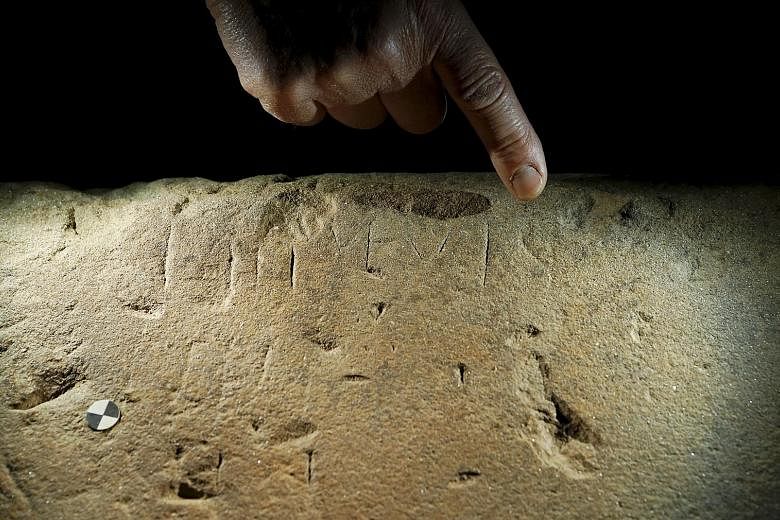FLORENCE • A rare inscription found on a stone unearthed near Florence is exciting archaeologists, who say it may help reveal the secrets of the Etruscans, one of Italy's earliest and most enigmatic civilisations.
The Etruscans flourished in central Italy 2,500 years ago, but their culture and language were assimilated into the Roman empire.
They left behind lavish tombs, pottery and statues, but tantalisingly few written documents and patchy evidence of their daily lives.
Etruscans usually wrote longer texts on perishable linen or wax, so archaeologists excavating in Tuscany's Mugello Valley were delighted when they found a 200kg sandstone slab, inscribed with more than 100 characters, in the foundations of a buried temple.
The stone has been painstakingly cleaned and, although the inscription is yet to be formally deciphered, experts are starting to understand its full significance.
"It's an Etruscologist's dream to find something like this," said Dr Gregory Warden, an archaeology professor whose team had been excavating for 20 years before the find. It seems to be "a sacred text that may reveal to us parts of the belief system of the Etruscans".
The stone could yield a new perspective because it was found in a religious sanctuary rather than one of the burial sites from which archaeologists have gathered most of their understanding of Etruscan life.
It lay flat in the temple's foundations but appears to have been stood upright previously, leaving unanswered questions about its original function.
Unlike many ancient relics which are found out of context, having been illegally dug up or moved from Italy's archaeological sites, the researchers hope the stone can document local history in the tract of land between modern Fiesole and Bologna, once major Etruscan cities.
REUTERS

